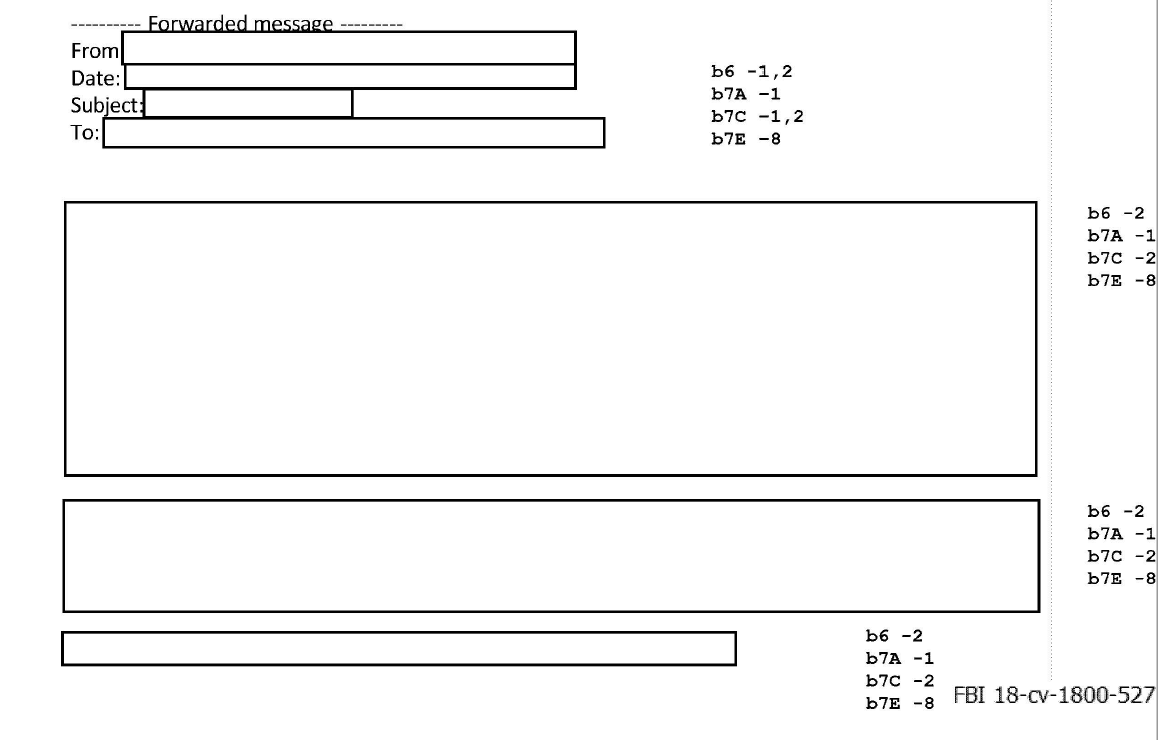Former FBI Chief of Staff James Rybicki forwarded a White House-originated e-mail with a draft speech for then-President Obama to a personal e-mail account in December of 2015. The FBI withheld in full the content of the draft speech after consulting with the White House National Security Council about its release. The e-mail was part of the last production of FBI documents in Cause of Action Institute’s FOIA litigation against the FBI regarding the work-related use of personal e-mail accounts by former FBI Director James Comey and former FBI Chief of Staff James Rybicki.
 The final FBI production also includes e-mails from former Drug Enforcement Agency (DEA) Administrator and FBI Chief of Staff Chuck Rosenberg, who repeatedly used a private e-mail account for official business in conversations with former FBI Director James Comey.
The final FBI production also includes e-mails from former Drug Enforcement Agency (DEA) Administrator and FBI Chief of Staff Chuck Rosenberg, who repeatedly used a private e-mail account for official business in conversations with former FBI Director James Comey.
It’s concerning to see high ranking officials violating government policies – setting a poor example to those they’re responsible for supervising and undermining the public trust that all public business can be properly archived and disclosed. When public officials conceal their work – the economic and individual rights of taxpayers is at risk, which is why Cause of Action remains vigilant and committed to holding all government officials accountable.
You can view and download the documents from this production here:
The first document production can be viewed here, the second here, and the third here.
Kevin Schmidt is Director of Investigations for Cause of Action Institute. You can follow him on Twitter @KevinSchmidt8
